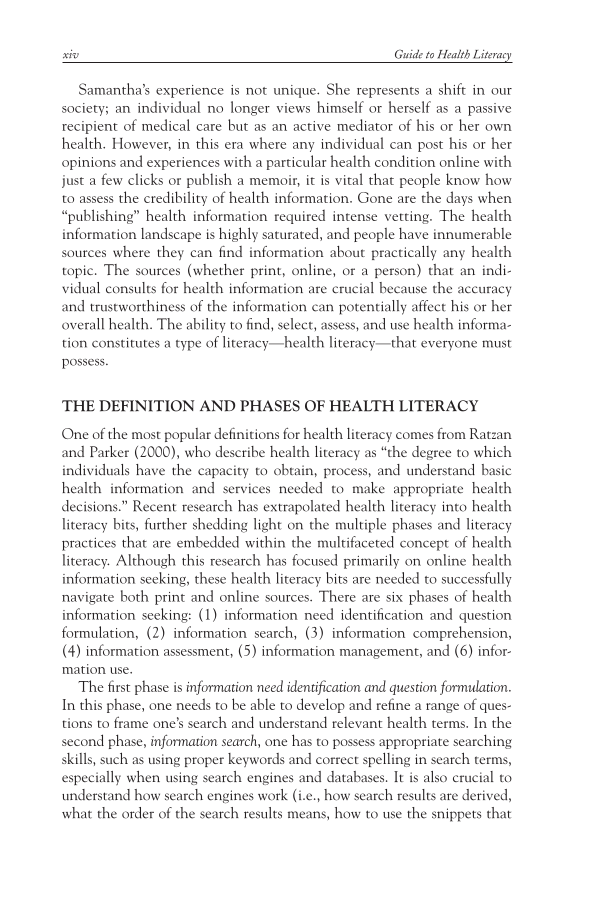xiv Guide to Health Literacy Samantha’s experience is not unique. She represents a shift in our society an individual no longer views himself or herself as a passive recipient of medical care but as an active mediator of his or her own health. However, in this era where any individual can post his or her opinions and experiences with a particular health condition online with just a few clicks or publish a memoir, it is vital that people know how to assess the credibility of health information. Gone are the days when “publishing” health information required intense vetting. The health information landscape is highly saturated, and people have innumerable sources where they can find information about practically any health topic. The sources (whether print, online, or a person) that an indi- vidual consults for health information are crucial because the accuracy and trustworthiness of the information can potentially affect his or her overall health. The ability to find, select, assess, and use health informa- tion constitutes a type of literacy—health literacy—that everyone must possess. THE DEFINITION AND PHASES OF HEALTH LITERACY One of the most popular definitions for health literacy comes from Ratzan and Parker (2000), who describe health literacy as “the degree to which individuals have the capacity to obtain, process, and understand basic health information and services needed to make appropriate health decisions.” Recent research has extrapolated health literacy into health literacy bits, further shedding light on the multiple phases and literacy practices that are embedded within the multifaceted concept of health literacy. Although this research has focused primarily on online health information seeking, these health literacy bits are needed to successfully navigate both print and online sources. There are six phases of health information seeking: (1) information need identification and question formulation, (2) information search, (3) information comprehension, (4) information assessment, (5) information management, and (6) infor- mation use. The first phase is information need identification and question formulation. In this phase, one needs to be able to develop and refine a range of ques- tions to frame one’s search and understand relevant health terms. In the second phase, information search, one has to possess appropriate searching skills, such as using proper keywords and correct spelling in search terms, especially when using search engines and databases. It is also crucial to understand how search engines work (i.e., how search results are derived, what the order of the search results means, how to use the snippets that
Document Details My Account Print multiple pages
Print
You have printed 0 times in the last 24 hours.
Your print count will reset on at .
You may print 0 more time(s) before then.
You may print a maximum of 0 pages at a time.
































































































































































